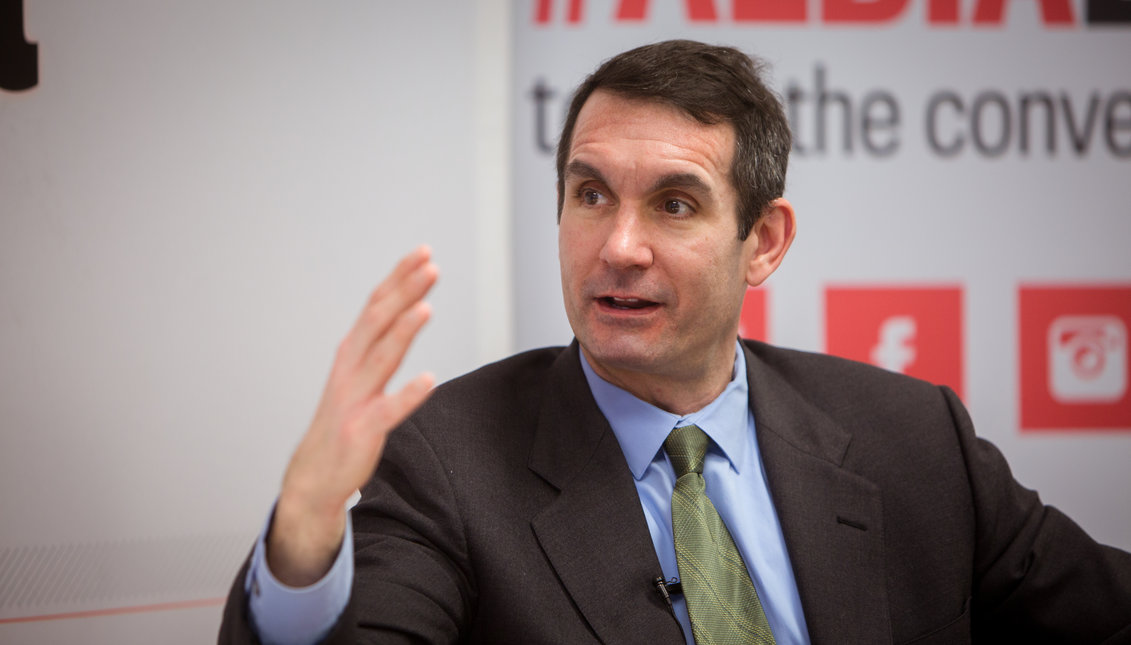
In PA, reversal on DACA would be disastrous for economy
Auditor General Eugene DePasquale, Pennsylvania’s chief financial watchdog, sat down with AL DÍA News to talk DACA, drug policy.
There are only a few weeks left.
After President Donald Trump canceled DACA, or Deferred Action for Childhood Arrivals, in September 2017, he imposed a March 5 deadline for lawmakers in Congress to decide the fate of the hundreds of thousands of people whose lives he flung into uncertainty.
It remains unclear what consequences DREAMers will face if the members of Congress cannot come to an agreement in time. However, given the volatile nature of our president and the hostilities toward immigrants demonstrated by his administration, it would be naive to rule out the idea that the federal government could order the deportation of these once undocumented immigrants.
Nationwide, that’s an estimated 800,000 people, including roughly 21,000 immigrants in Pennsylvania, 5,000 of whom live in the Philadelphia area, according to Auditor General Eugene DePasquale.
As auditor general, DePasquale is Pennsylvania’s chief financial watchdog, working to ensure that the state’s tax dollars are spent legally and effectively. His office also determines whether state institutions and programs are running as efficiently as possible.
DePasquale, a Democrat and Pittsburgh native, was elected auditor general in 2012 and is now serving his second term. Prior to this position, he represented the 95th District in the Pennsylvania House of Representatives for six years.
Throughout his political career, DePasquale has advocated for transparency in government, becoming the first Pennsylvania state legislator to post his expenses publicly online. As auditor general, he has championed state initiatives such as improving child protective services and decreasing the number of untested rape kits used by police departments. He has also been a vocal proponent of prison reform and the legalization of recreational marijuana.
On Feb. 12, DePasquale spoke with AL DÍA News about his concerns regarding the political mess that the DACA debate has devolved into.
DePasquale emphasized that he fully supported President Barack Obama’s decision to enact DACA, first and foremost “as a human being and as an American.” While the thought of the federal government deporting DREAMers is a tragedy in and of itself, as auditor general, DePasquale is qualified to explore the financial consequences that could accompany the termination of DACA.
“If the Trump administration were to reverse it and Congress doesn’t find a fix, the economic implication for Philadelphia, the Lehigh Valley, and a pretty big chunk of Pennsylvania would be disastrous,” DePasquale said.
While it is difficult to attach an exact number to this impact, DePasquale estimates the loss of 21,000 Pennsylvanians — workers, taxpayers, innovators, and contributors — would cost the state’s economy tens of millions of dollars.
Beyond the economic consequences, a DACA reversal “would be such an abandonment of American principles,” DePasquale said. When these immigrants came out of the shadows to register with the U.S. government, agreeing to the terms of the DACA program, the nation made them a promise.
“If we were to go back on that commitment, it would send a black eye to the United States as a whole,” he said. “It would send a message: we don’t keep our commitments.”
For DePasquale, deporting DREAMers should be out of the question as federal lawmakers debate DACA.
“There needs to be comprehensive immigration reform that I also believe needs to have a path to citizenship,” he said. “That’s clearly where the policy should go.”
RELATED CONTENT
Growing up, DePasquale’s father served a mandatory minimum sentence in a federal prison for selling narcotics.
The auditor general said his father, who was wounded in military service during the Vietnam War, began using drugs to manage his pain, which eventually led him down a path to harder drugs.
“That’s actually a pretty common path. It’s not unique to him,” DePasquale said. “Our federal prisons are filled with tens of thousands of people that fall into that exact same category.”
In response to the opioid crisis that is plaguing Pennsylvania and the nation as a whole, DePasquale believes lawmakers must take a different approach—rather than incarcerating non-violent drug users, many of whom struggle with chronic pain, the state should work to address addiction medically and scientifically.
This process should include working with the medical community to ensure doctors prescribe less addictive drugs to manage pain, DePasquale said. He added that prioritizing safety in the workplace, where many injuries that cause chronic pain occur, is crucial.
DePasquale emphasized that serious drug-related crimes, including offenses involving violence or the sale of narcotics to children, must remain issues of the criminal justice system, but unburdening prisons of non-violent drug users would free up tax dollars for institutions in dire need, such as the education system.
Making his case, the auditor general explained that public education in Pennsylvania costs an average of $10,000 to $14,000 per child per year. Meanwhile, the cost of incarceration is about $40,000 per inmate per year.
When asked his opinion on safe injection sites, a controversial concept to address the opioid crisis that is under consideration in Philadelphia, DePasquale said the jury is still out.
“I am a believer that if someone is addicted, we need to get that person medical help,” DePasquale said. “Are injection sites the best way to deal with it? I’m not prepared to say they are at this point.”










LEAVE A COMMENT: